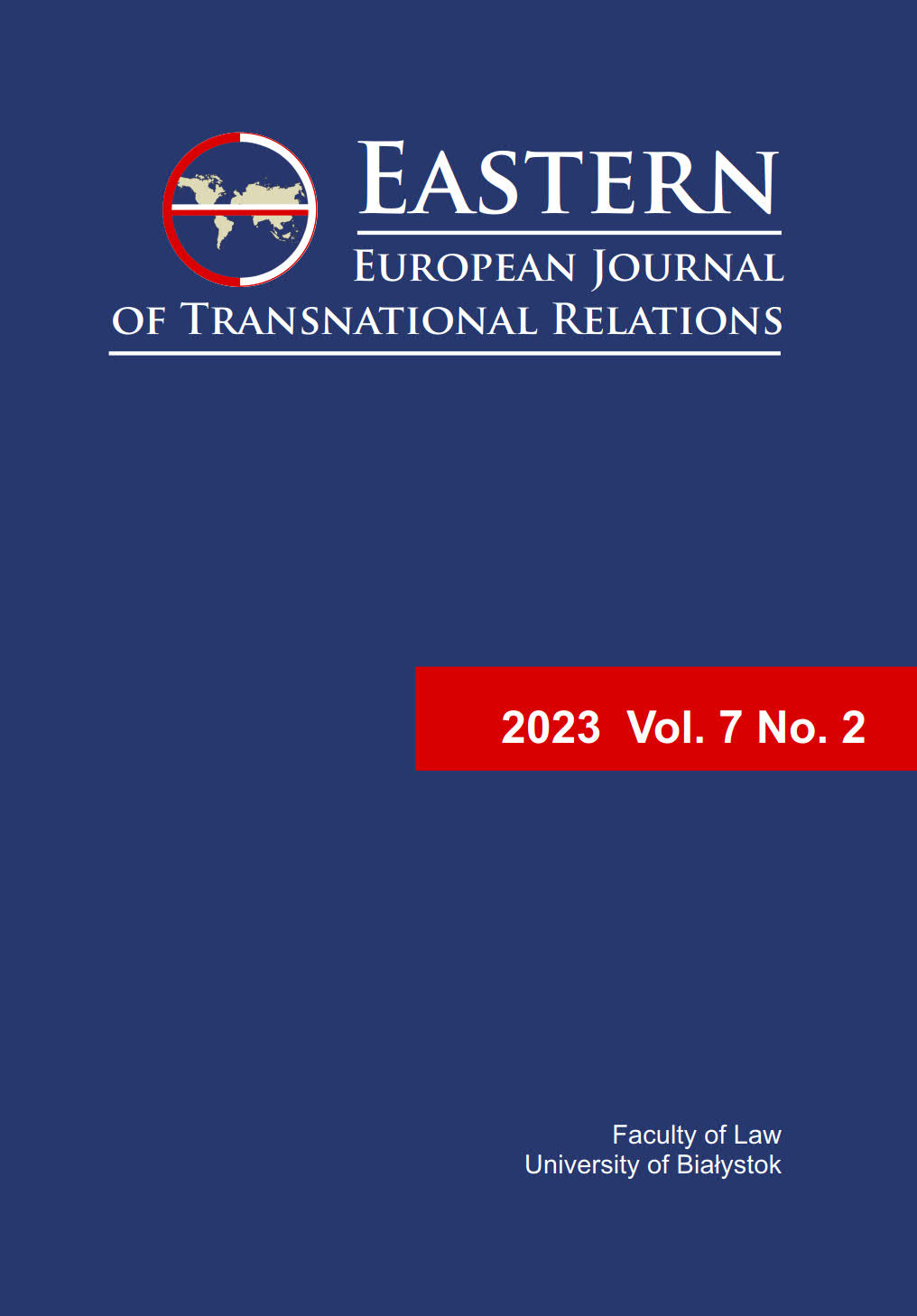Commentary to the judgment of the ECHR of 16 June 2022 Żurek v. Poland, Chamber (Section I), Application no. 39650/18 (on freedom of expression of judges)
DOI:
https://doi.org/10.15290/eejtr.2023.07.02.10Słowa kluczowe:
freedom of expression, rule of law, independence of judges, independence of judiciary, disciplinary proceedings, reforms of judiciaryAbstrakt
The commented ruling of the ECHR of 16 June 2022 in the case Żurek v Poland concerned the crucial issue of judges' freedom of expression. It is particularly significant in the context of the recent changes concerning the judiciary in Poland and the associated threats to judicial independence and the independence of judges, which were manifested, inter alia, by numerous disciplinary proceedings initiated against judges. The authors present the main facts and legal issues concerning the case, as well as the findings of the Court and the judgement. They also refer to other previous judgments relevant to this context. The authors fully endorse the position of the Court that a judge has not only the right but also a duty to speak out on the rule of law in case the reforms introduced in the country constitute a violation of the constitutional principle of a democratic state based on the rule of law.
Pobrania
Pobrania
Opublikowane
Numer
Dział
Licencja

Utwór dostępny jest na licencji Creative Commons Uznanie autorstwa 4.0 Międzynarodowe.
1. The Author declares that he or she has created the written work and holds exclusive and unlimited copyright /both moral and property rights/ and guarantees that no third parties have rights to the work.
2. In the view of the Copyright and Related Rights Act, a work must fulfill the following criterion:
a) be a manifestation of creative work,
b) have an individual character („author’s personal stamp”),
c) have a set form.
3. The Author declares that the text has not been previously published (under the same or different title, or as a part of another publication).
4. The Author allows (grants a non-exclusive license) the publishing house of University of Białystok to use the scholarly text to:
- preserve and multiply by means of any technique; save in a digital form with no limitations as to the manner and form of digital preservation;
- upload online with no limitations as to the place and time of access.
5. The Author grants consent for editorial changes made in the work.
6. The Author grants the University of Białystok rights free of charge for the duration of property copyright with no territory limits. The University has the right to grant sublicenses in the acquired rights.
7. Granting a non-exclusive license allows the Author to preserve their rights and allows other parties to make use of the work according to sublicensing agreement with provisions identical as those of Attribution 4.0 Internacional License (CC BY 4.0), available online at: https://creativecommons.org/licenses/by/4.0/. License to all its content published from 2023 and CC BY-NC-ND 4.0 to all its content published from 2017 to 2022.
8. The Agreement has been concluded for an indefinite period of time.
9. Because of costs born in preparation of the work for publishing, the Parties oblige themselves to act in good faith and refrain from declining to grant licenses.
10. To all matters not settled herein, provisions of the Civil Code and Copyright and Related Rights Act of 1994, February 4 shall apply.
11. All disputes shall be resolved by a court of local jurisdiction for the place of seat of University of Białystok.


